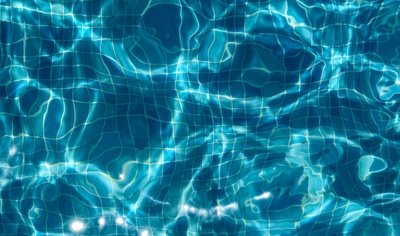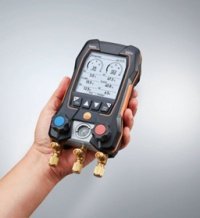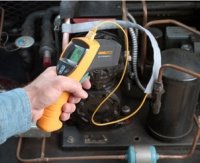Let’s Talk About Pool Water Testing (and the 4 Best Tools for it!)

While pool water maintenance can be a drag, it’s a must for a healthy pool and will save you money. Correct filtration systems, together with balanced and sanitised pool water, protect swimmers, pool infrastructure and support sanitising agents' effectiveness (win, win, win)!
The best way to know your pool’s water quality is to test it all year round. You’ll need an accurate, reliable, and comprehensive water testing kit. With the right gear, accurate testing takes only minutes – then you can be sure your pool is sparkling, safe and not at risk of damage all year-round.
What is ‘Balanced Water’?
Balancing pool water is a challenge because water quality can change rapidly, affected by such events as rainfall, water top-ups, falling debris and pool usage. ‘Balanced water’ in a swimming pool refers to an equilibrium of soluble chemicals within safe ranges.
To maintain your water quality, you must stabilise the following parameters:
- pH
- Sanitisers (E.G. Chlorine)
- Calcium Hardness; and
- Alkalinity.
Let’s now explore the ‘why’ and ‘how’ in more detail.
pH levels
Testing your pH level tells you how acidic or alkaline your water is at any time. pH 7 indicates your water is neutral; below 7 indicates it’s acidic, while above 7 is alkaline. The acceptable Australian Standard for pool water alkalinity is a pH range of 7.0 to 7.8 - pH 7.4 is ideal and indicates adequate chlorine disinfection.
The table below illustrates what can go wrong when pH levels get out of whack:
pH Above 8 |
pH below 7 |
|
|
Chlorine and other sanitisers
Chlorine is the most popular sanitiser for pools. Other disinfectants include salt chlorinators and bromine. Sanitisers deplete quickly in pool water, which is why frequent testing and replenishment is needed.
If chlorine concentrations (or other sanitisers) are too low, bacteria, algae and other nasties will thrive. On the other hand, if the chlorine is too high, swimmers will experience discomfort and pH levels become elevated.
You’ll need to maintain a free chlorine level of at least 2 milligrams per litre for water temperatures below 26 °C. Above 26 °C, you should aim for 3 milligrams per litre.
Total alkalinity
Total alkalinity is the concentration of total dissolved solids and bases in water. Low pool total alkalinity can result in volatile pH levels. For example, high total alkalinity decreases pH sensitivity, resulting in high pH and compromised chlorine effectiveness.
Australian Standards recommend 140-160ppm for concrete pools and 60-200ppm for fibreglass pools.
Calcium hardness
The term “hard water” means an elevated level of calcium hardness. It’s the cause of calcium build-up on pool walls, in pipes and around mechanical equipment. Water with low calcium hardness is known as “soft water”, which leaches calcium and other minerals out of your pool’s surfaces, causing expensive corrosion – ouch!
The ideal calcium hardness level can vary depending on your pool’s design, local water and mechanical pool equipment. The Australian Standards for a backyard pool ranges between 175 ppm to 300 ppm. Any supplier of pool chemicals worth their salt can help you find the ideal calcium hardness level.
Home Pool Testers
Instrument Choice Scientists made a representative list of single and multi-parameter pool testers for your consideration.

PHTESTR10 Tester With Atc; +-0.1 pH Accuracy
|
|
|

Waterproof 5 Parameter Water Quality Meter Kit
|
Lumiso Pooltest 6
|
Conclusion
Balancing pool water is critical for your pool and equipment's longevity, not to mention pool users' safety! And the only way to determine pool water quality is to use an accurate, reliable and comprehensive water tester(s).
Whether you want a tool to perform daily checks between your scheduled professional maintenance visits or need a professional multi-parameter water meter, Instrument Choice can conveniently supply a device that’s perfectly suited to your needs.
Don’t see what you’re after in the examples we have listed above? See the complete list of water quality meters here or contact an Instrument Choice Scientist – we’ll help you find the best equipment and supplies for your budget and application: Call 1300 737 871 or email [email protected].
Also interesting
If you deal with the commissioning or servicing of heat pumps, refrigeration and air conditioning systems, or you’re sick of impractical, hard-to-read LCDs or cumbersome hardware, then say “hello” to the new smart wireless digital manifolds from Testo!

The Instrument Choice Team of Scientists regularly reviews new and popular products, so when searching for the perfect scientific instrument for your application, you can make more informed decisions.
This edition reviews the ever-popular HVAC PRO IR Thermometer (IC-FLUKE-561). The Fluke 561 Thermometer is a dual function IR and contact thermometer built into one ergonomic, portable and easy-to-use package.
Get our scientists’ review of the Fluke 561 – the professionals’ thermometer of choice in the Electrical, Maintenance or Automotive industries



